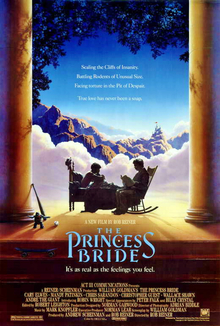
It’s easy to become disheartened when submitting your writing. We’ve all been there. Even after all the heavy lifting of writing a story or novel, revising it, getting feedback, even working with an editor, you send it out into the world with high hopes. Sadly, there is no guarantee of success, exception maybe perseverance, but even then you know not every story will find a home.
Take heart! Even great stories can take a while to find traction. Take The Princess Bride, now cherished as a classic film. Upon its theatrical release in 1987, it barely made a ripple, and was considered a flop. (For the inside story on what it was like to work on the movie, I highly recommend Cary Elwes’ book, As You Wish: Inconceivable Tales From the Making of The Princess Bride.) But thanks to home video and word of mouth, eventually the movie found its audience, and then some, becoming a cult classic.
I happen to think that in submitting your writing, as in many aspects of life, The Princess Bride has much to teach us.



